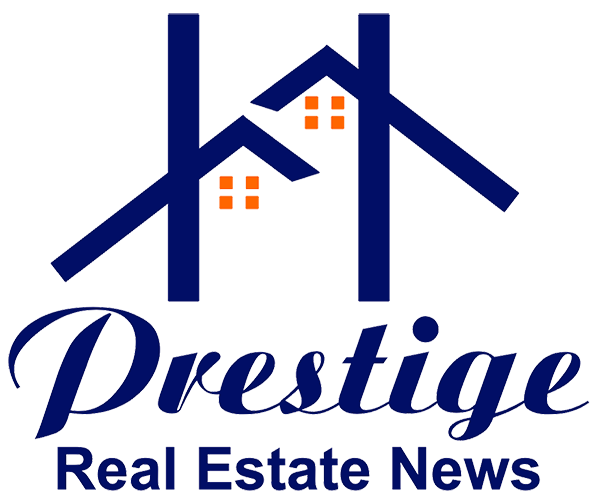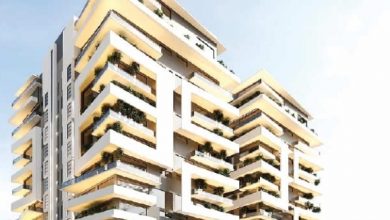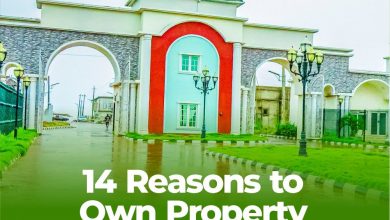Here’s snapshot of Lagos residential market potential | Prestige Real Estate News


By Chuka Uroko
Lagos is a burgeoning real estate market with varying opportunities and return on investment levels in the different market segments.
The residential segment holds the ace, which explains why investors, both domestic and foreign, are playing big in that market.
In some parts of this city, property values can appreciate by up to 10 percent annually, especially in rapidly developing zones. However, in more stable areas, the appreciation rate tends to hover around 3 percent and 5 percent, contributing to the overall average.
Residential properties typically appreciate by 4 percent to 6 percent annually, but it is a different kettle of fish for rental properties where returns are more attractive, ranging from 6 percent to 8 percent annually. They make the market even more appealing for those seeking rental income and also encouraging more investment in residential properties.
Student housing is even more attractive. According to Abayomi Onasanya, CEO, Student Accommod8, returns on purpose-built students’ hostels can be as high as 22 percent which, according to him, is a lot higher than what commercial real estate offers.
In Lagos, over 40 percent of residential properties are investor-owned, not resident-owned, which explains why the market is buzzing with investor activity, especially in areas such as Ikoyi, Victoria Island, Lekki, and Ikeja.
These neighbourhoods are magnets for developers and investors, indicating a strong trend of investment-driven property ownership. The Central Bank of Nigeria (CBN) notes that many Nigerians face affordability challenges, with only about 10 percent able to afford homes.
This gap suggests that investors, rather than residents, own a significant portion of residential properties.
Over the years, researchers and analysts have subjected the Lagos housing market to thorough scrutiny, highlighting the opportunities that the market offers investors, especially those with patient capital and a long-term view of the market.
For reasons bordering on the state’s expanding population and fast-paced urbanisation, which makes it come off easily as mini-Nigeria, the residential segment of the market is mostly the focus of these analyses and studies.
A Pison Housing Company research on the ‘State of Real Estate Market’ finds that the state’s residential market is so active that about 80 percent of its over 20 million population live in rented accommodation.
Roland Igbinoba, President/CEO of the company, explained to BusinessDay that these renters spend over 50 percent of their income on house rents, noting that, though this is a social problem, it offers investors huge opportunities, especially with appropriate pricing and market dimensioning.
Moruf Akinderu-Fatai, Lagos commissioner for housing, corroborated this at a real estate forum, stressing that the opportunities are all the more compelling given that Lagos records over 6000 immigrants daily, with about 50 percent not returning home.
In its 15 statistics for the Lagos real estate market in 2025, The Africanvestor, a team which specialised in real estate investing in African countries, notes that in 2025, Lagos faces a massive housing deficit of over two million units.
The survey explains that the shortage is fuelled by the city’s booming population, which is expected to exceed 20 million by 2025, pointing out that, as a bustling commercial centre, Lagos draws people from across Nigeria and beyond, intensifying the demand for housing.
The team provides guides on profitable locations for investment in Lagos. According to the team, properties near schools are in high demand, leading to rental prices up to 20 percent higher than other areas.
This is because families and students prioritise living close to educational institutions for convenience, making these properties particularly attractive.
In Yaba, a bustling area known for its tech scene and educational institutions, rental demand is exceptionally high. This demand naturally pushes prices up as people are willing to pay more for proximity to schools and universities.
Similarly, The Africanvestor says that ocean-view properties in Lagos are priced up to 25 percent higher than inland options, citing areas like Ibeju Lekki and Abijo known for their prime coastal locations and naturally boost real estate values.
“Living close to the ocean not only means enjoying breathtaking views, but also embracing a lifestyle that many find irresistible,” the team says.
“Another factor driving up prices is the investment potential of these coastal areas. Over the years, demand for properties in strategic coastal locations has been on the rise, pushing property values higher. This trend indicates that buyers are ready to pay more for the potential return on investment that ocean-view properties promise.”
– Culled from BusinessDay






